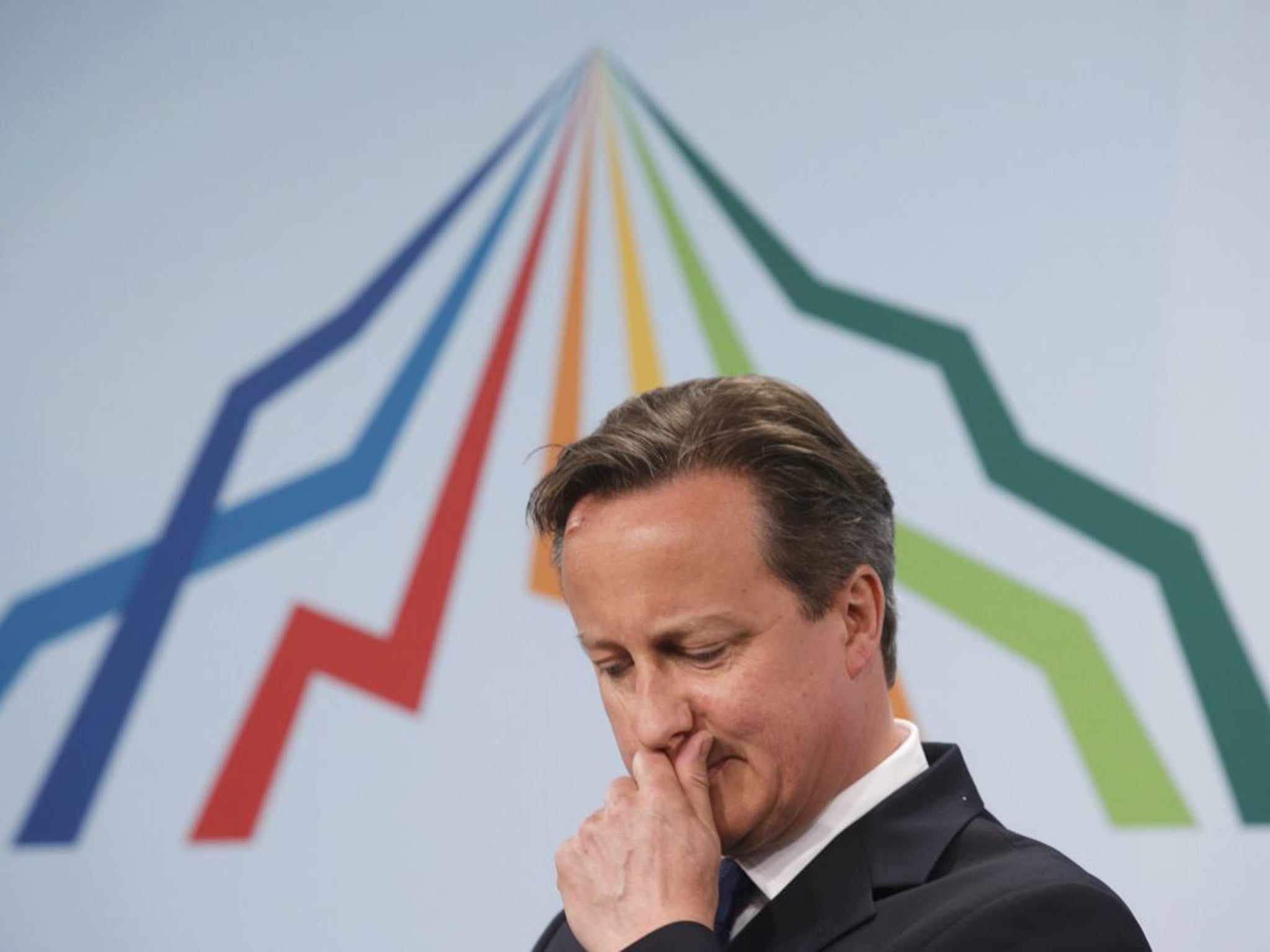Greece might just have gifted David Cameron with EU referendum success
Now the EU’s confidence has been hit, the PM might just do better than he’d hoped before next year’s poll

One of the few aspects to deplore about British journalism – which is the best in the world, even allowing for the controversies engulfing it over the past few years – is the tendency to look at everything through our end of the telescope. Seeing every world development through the small-minded what-does-it-mean-for-us approach can make for depressing reading.
So I have been rather mystified that one aspect of the Greek euro crisis has been missing from coverage of the affair. Less the what-does-it-mean-for-the-British-economy question – which has been covered sporadically and unsatisfactorily – and more, what the momentous shenanigans might mean for our Prime Minister’s ambitions to win his own referendum on Europe.
Hats off to Alexis Tsipras – in one key respect at least – for calling his vote on Sunday. Leaving aside the ludicrously lengthy question Greeks face, at least they won’t have to suffer two years of this particular aspect of their plight dominating the news agenda. Come Monday morning, they can probably move on – grimly, no doubt – to the next phase.
Us? I spent 18 months as the BBC’s Referendum Editor for the Scottish independence campaign. One lesson is how the constitutional question sucked the life out of anything else in the body politic.
It is happening all over again, UK-wide. The economy? It might get a look in. Hospitals? Schools? Any other bright ideas that might make folks’ lives better? Forget it. Politicians and the media are going to be locked in to the tedious minutiae of Dave’s EU referendum until it happens, and it will be torture for most of our already disengaged electorate.
Tsipras, though, has done us all a service. He has shouted that the emperor wears no clothes. Brussels – and the machine of hegemony which surrounds it – is utterly stumped. No one was ever meant to do this. The key players are reduced to spluttering, bullying, coordinated threats.
Why does this matter for David Cameron? Tsipras – in daring to question the EU – has highlighted many of those lingering doubts even we Europhiles have always had: about the palpable democratic deficit, and the economic bonkersness of the euro, and specifically, how the convergence rules were gerrymandered to ridiculous effect.
There’s little worse than a bout of I-told-you-so, but who can resist? Some of us were warning in the late Nineties that you can’t throw all sorts of economies together with one interest rate. Now? Europe’s refusal to brook much dissent will never seem quite the same again after the Greek rebellion.
This can only help Cameron. He was already – successfully – preparing the ground for the marginal changes he might wrest from Brussels to be sold disingenuously as serious reform, and we know that he wants a Yes vote come what may. With the Leviathan-like authority of the EU pricked, and its confidence hit, the PM might just be able to do better than he might have hitherto hoped before next year’s poll.
David Cameron is a lucky Prime Minister. To which, you might cite golf’s legendary Gary Player: “The harder I work, the luckier I get.” You’d be wrong, though.
In 2005, David Davis thinks the Tory leadership is all but won, and delivers a poor podium performance. Tony Blair stands down in 2007, gifting a then floundering Cameron an opponent against whom it is easier to define himself.
In his brief honeymoon period, Gordon Brown wobbles over a quick election he would surely have won. He becomes wildly unpopular – but still Cameron can’t beat him. Somehow, though, Cameron stumbles into coalition with the Lib Dems. They not only get him off the hook and take the roughest edges off his Government, but are the whipping boy saps. Cameron almost loses Scotland, and then sparks a massive backlash over his stupid English votes for England laws comments the morning after the vote. That sees the SNP surge.
Even this works in his favour. It delivers him the best weapon during a lamentable general election campaign, that Labour would have to be propped up by the Scots.
And he is fortunate to be up against Ed Miliband, and a political operation whose biggest coups were Chris Morris-esque: encounters with Russell Brand and a big gravestone. He wins. With a majority!
You see? Lucky. In his favour, though, where fate has dealt him a fortunate hand, he’s tended to make the most of it.
That is why the Greek uprising offers an opportunity. True, there are dangers. The EU might react to its authority being undermined in one area by cracking down in others. No campaigners can depict it – finally – as slightly less unchallengeable than even a week ago.
But something is changed forever, and no doubt in Downing Street, they are gaming on how best to take advantage. And if they are not, they should be.
Join our commenting forum
Join thought-provoking conversations, follow other Independent readers and see their replies
Comments
Bookmark popover
Removed from bookmarks